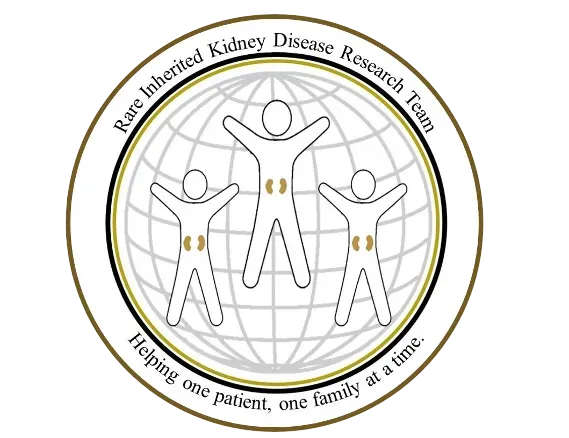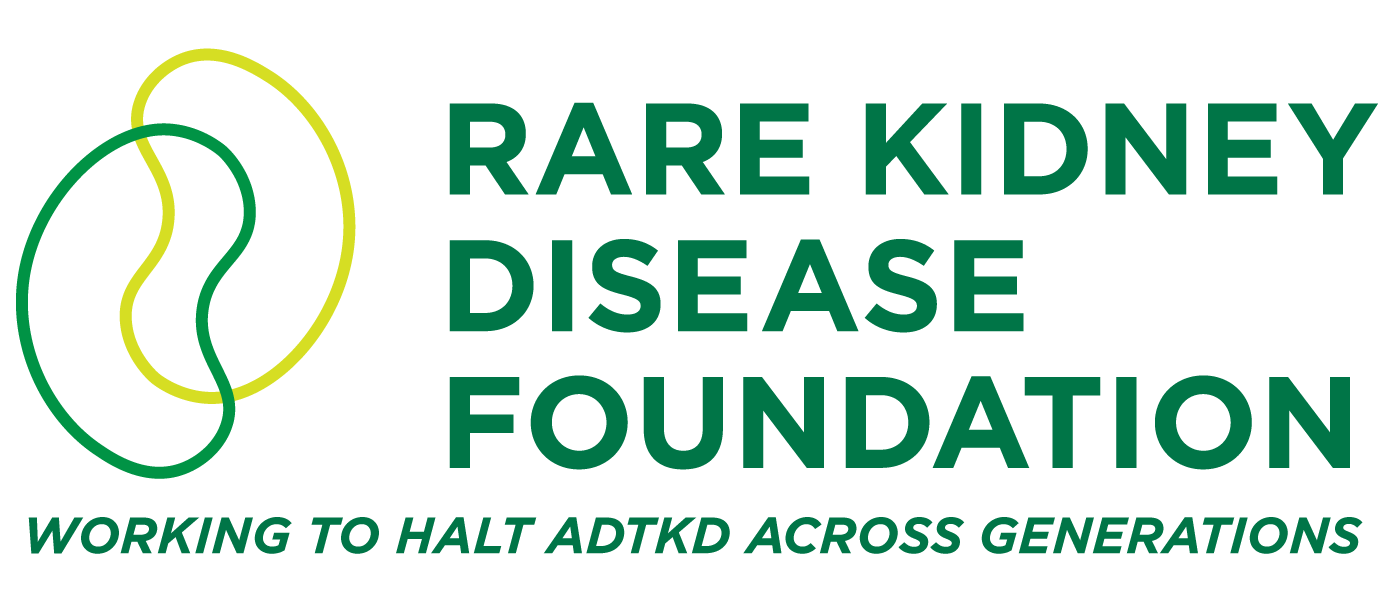For Patients and Families
"We are closer than ever to bringing a GAME-CHANGING treatment to a clinical trial!”
- Dr. Anna Greka, The Broad Institute at MIT and Harvard
Do several of your family members have chronic kidney disease (CKD),
but you don’t know the cause?

You are not alone.
Autosomal Dominant Tubulointerstitial Kidney Disease (ADTKD), is the #1 rare genetic kidney disease in the U.S., affecting an estimated 75,000 to 100,000 individuals.
Yet too few kidney patients and nephrologists are aware it exists, leading to fraught diagnostic journeys and missed opportunities for appropriate disease management.
What Are The Defining Features of ADTKD?
There are three defining feature of all subtypes of ADTKD:

A parent also had kidney disease (“autosomal dominant inheritance”)
If a parent has an ADTKD gene mutation, then there is a 50/50 chance they will pass it on to each of their children (regardless of the child’s gender).

Slowly progressing chronic kidney disease
The decline in kidney functioning occurs over many years. Many people do not even know they have kidney disease until routine blood work detects elevated levels of creatinine and/or a decrease in the glomerular filtration rate (GFR).

No blood or rarely protein in the urine
Often, kidney disease is diagnosed when blood and/or protein is detected in the urine. However, with ADTKD, there is no blood and rarely is there protein in the urine
How is ADTKD Diagnosed?
✔ ADTKD may be suspected if an individual has one or more of the defining features listed above.
✔ The most definitive test for ADTKD is genetic testing.
❌ Kidney imaging and kidney biopsies do not help diagnose ADTKD.
Why Get Genetic Testing?

To provide an accurate diagnosis
To ensure appropriate disease management
To inform life decisions, such as family planning, financial planning, and choice of health insurance
To participate in research aimed at learning more about ADTKD and developing a treatment
Even if you are on dialysis or post-transplant, genetic testing lets you know if others in your family are at risk for ADTKD!
Want to Help With Research?
Join the International ADTKD Registry!
What is the International ADTKD Registry?
The International ADTKD Registry is a group of individuals diagnosed with ADTKD through genetic testing who have agreed to participate in research on inherited kidney disease.
This registry was created by
Dr. Anthony Bleyer, Sr., and is administered by the Rare Inherited Kidney Disease Research Team at Wake Forest University School of Medicine.

Why is Participation in the Registry Important?
Every patient who tests positive for ADTKD and joins the International ADTKD Registry help researchers learn more about this insidious kidney disease.
It also brings our research partners one step closer to gaining the number of patients needed for a near-term clinical trial of one or more promising treatments.
Interested in Genetic Testing?
If you have a family history of slowly progressing chronic kidney disease with no blood or protein in your urine and are interested in genetic testing, click below, and we will forward your inquiry to the Rare Inherited Kidney Disease Research Team at Wake Forest University School of Medicine. They can help evaluate your situation and let you know whether genetic testing for ADTKD may be right for you.
Already Diagnosed with ADTKD?
Join our ADTKD community and learn how you can participate in ADTKD research to HALT this genetic disease once and for all!
Sign up for our Newsletter TODAY to make sure you never miss a story!
Read about patient health and well-being, the latest research on ADTKD, progress in finding a treatment, and much more.

© 2026 Rare Kidney Disease Foundation - All Rights Reserved
Privacy Policy | Terms and Conditions
Rare Kidney Disease Foundation is a 501(c)(3) non-profit organization. Federal tax ID: 82-4421861
System Architecture by AI Advisor Systems